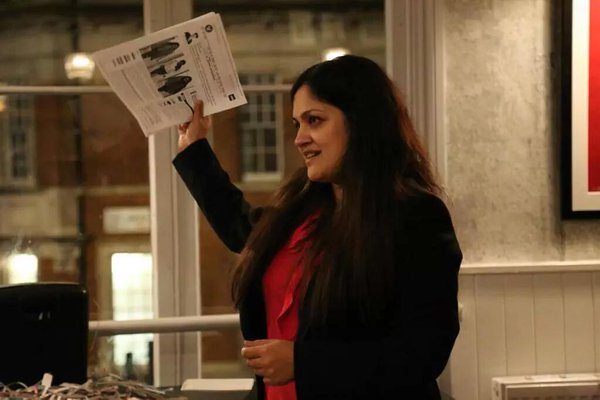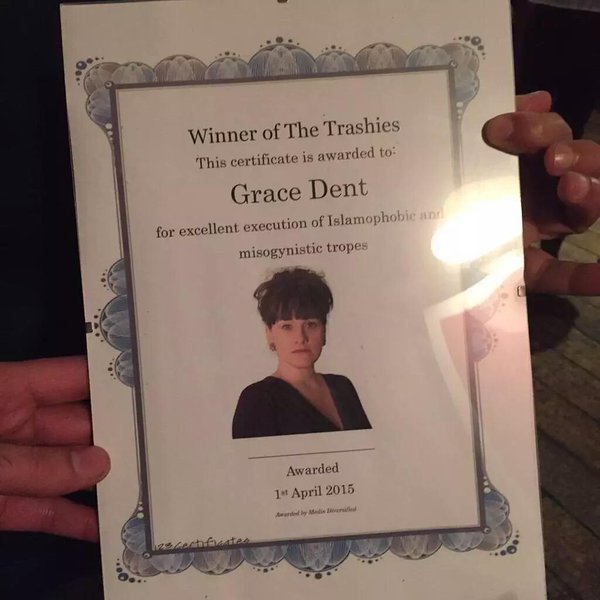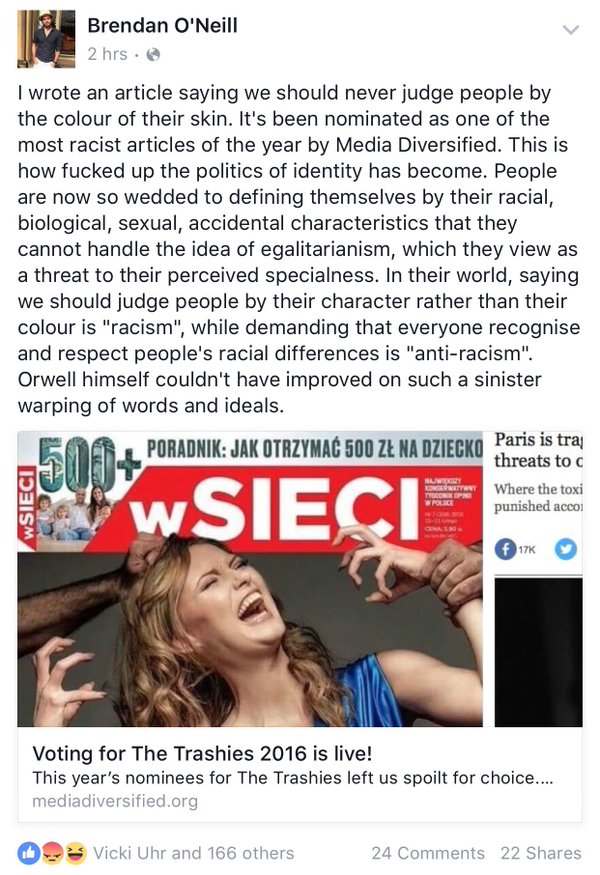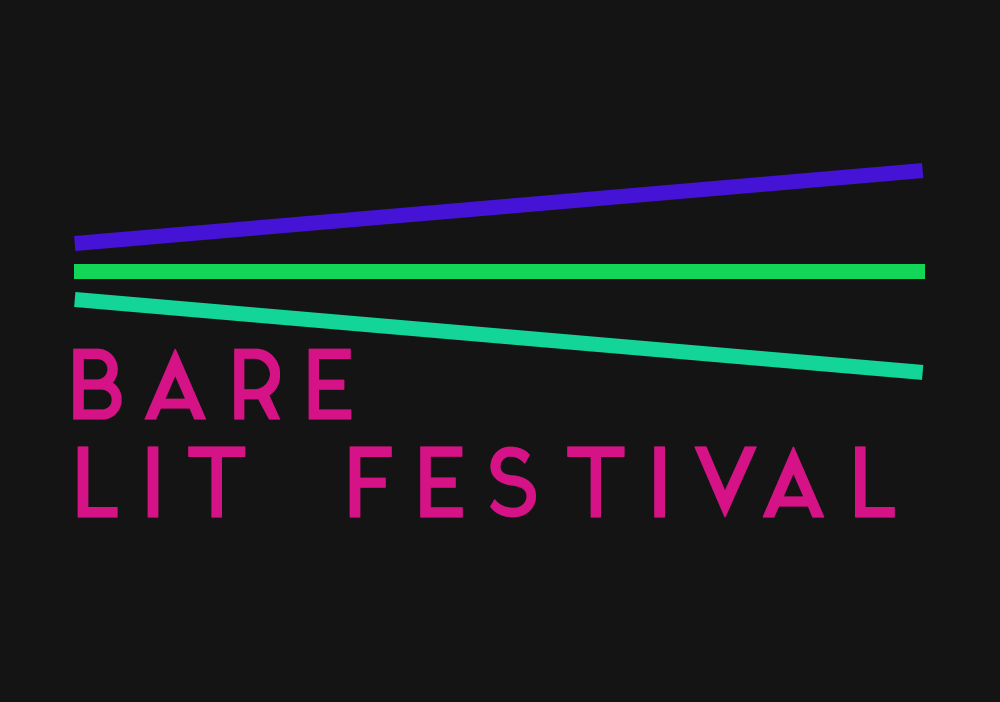
For the past two years our friends over at Media Diversified have been running The Trashies; somewhat of an antidote to the mainstream journalism industry’s Press Awards. In it, they seek to identify articles that rely and perpetuate racism and Islamaphobia, in what they call “the equivalent to the Hollywood’s Razzies”. After the articles are nominated by the general public on social media, the winner’s words are symbolically shredded at an awards ceremony.
The Trashies are the afterbirth of a journalism industry that is heavily dominated by the white middle classes. While journalism, at least at one stage, was a working-class profession, 2012 figures put the amount of journalists from families of “unskilled” workers at just 3%. 2013 statistics from the National Union of Journalists show that 94% of journalists are white, elucidated at the Press Awards last night, which had only two journalist prize-winners who were visible ethnic minorities (Matthew Syed of The Times and Amie Ferris-Rotman), and no black winners at all.
I have said this said time and time again, but until there are more ethnic minorities and those who were not educated at Oxbridge at the helm of the media, it will continue to drag its heels in the ground and remain awash with subtle racism and ignorant content.
This was shown particularly clearly last year, when a series of articles written for publications ranging from the Independent to the Telegraph insensitively approached the disappearance of Shamima Begum (15), Amira Abase (15) and Kadiza Sultana (16) – three girls who left the UK to join the ranks of ISIS in Syria.
“Make no mistake,” wrote the Telegraph’s women’s editor Emma Barnett, “Shamima Begum, Amira Abase and Kadiza Sultana are not missing. They have joined a murderous cult of their own volition – just like their Western male counterparts. Yes, they happen to be women – but they are still sentient beings – capable of knowing right from wrong.”
“With Isis there’s no excuse for not knowing what ‘they’ are up to,” columnist Grace Dent stated in a similarly venomous piece, “There will no big post-war reveal where we can wring our hands saying, ‘Well, this is awful, but we had no idea’. I wanted to ask Abase Hussen, as he clutched his daughter Amira’s stuffed toy, what exactly he thought was the tipping point that made his delicate, innocent baby-girl leave the country in such a rush that she left teddy behind?”
It was the latter of these two Islamaphobic, unsympathetic, and in some places, very cruel articles that inspired The Trashies, and Grace Dent’s piece, “If teenage girls want to join Isis in the face of all its atrocities, then they should leave and never return”, ended up winning The Trashies first-place award in 2015.
While the awards are not intended to personally attack writers, as Samantha Asumadu, founder of Media Diversified explains: “People of colour in the UK and around the world have been demonised and misrepresented in some manner from the beginning of time or at least colonialism. This has only been made easier and starkly apparent by our mainstream press’ embrace of online media.
“Ultimately we hope that it [The Trashies] will get individuals and the press at large to think a little more before they use tired tropes and lazy misrepresentations.”
This year, articles nominated include, “Today’s feminists are so out of touch with how most women live, they might as well be on another planet”, by Julia Hartley-Brewer for The Telegraph, “Race and gender: I feel, therefore I am”, by Margaret Wente for The Globe and Mail, “Jihadis, voodoo, murders, sex trafficking… we can stop them all if we quit EU, says crime expert”, by Dr Richard Hoskins for The Sun and “Why cast a lighter-skinned actor as Nina Simone? Here come the racesplainers”, by Hadley Freeman for The Guardian.
With the nomination of the last article in particular, a discussion was opened up on social media about whether or not white columnists, such as Freeman and Suzanne Moore, should be writing about black and minority ethnic (BAME) issues in their weekly articles, and whether this plays into elements of racism in the industry.
The argument from Media Diversified is that publications such as the Guardian should make the effort to hire more BAME staff writers and commission BAME freelancers, rather than allowing white writers to speak for communities they are not a part of. This issue arose recently after Beyoncé released her Formation video, which inspired a few white-written think pieces, and I am in agreement that publications should be doing as much as they can to promote the writing of ethnic minorities on topics that directly affect them, rather than relying on white staffers to cover all bases.
However, I personally didn’t find Freeman’s work to be overly problematic. In my eyes, at least until the Guardian takes on a black columnist, she should aim to write carefully considered pieces on racial topics, taking on the righteous criticisms that she will inevitably receive from the PoC community with as much openness as she can muster.
As Freeman wrote on Twitter after being challenged about her article, “I fully agree, there are not enough POC in UK journalism. But I ask you honestly, do you think I should only write about issues relating to white people in regular slot I’m lucky enough to have? That would feel very narrow and grossly exclusive to me.”
The Trashies has also been ruffling the feathers of a few other big-name journalists, and it was Giles Coren who, last night during the Press Awards, roundly told Media Diversified to “fuck off” on Twitter because he was upset with them highlighting the lack of diversity at the awards.
@WritersofColour fuck off. Of the Times winners so far tonight, Rachel Sylvester isn’t a man and Matthew Syed isn’t white. You silly wanker.
— Giles Coren (@gilescoren) March 22, 2016
Brendan O’Neill, who wrote a blog piece for the Spectator that has been nominated this year for The Trashies (now seemingly removed from the Spectator’s website), also got up in arms on Facebook, condemning the awards by stating that “people are now so wedded to defining themselves by their racial, biological, sexual, accidental characteristics that they cannot handle the idea of egalitarianism, which they view as a threat to their perceived specialness”.
Because, you know, the reason why people identify as being black, or gay – say – is because they want to feel “special”.
Their responses, and even Freeman’s to some extent, further highlight why platforms like Media Diversified and (dare I say it) gal-dem, need to exist. I’m looking forward to seeing which articles are heading towards the shredder in the next few weeks.







